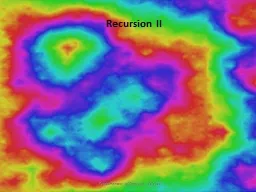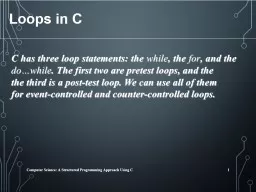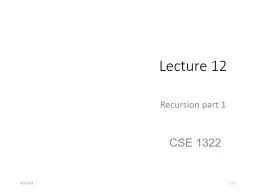PPT-Recursion II Fundamentals of Computer Science Outline Recursion
Author : luanne-stotts | Published Date : 2019-11-02
Recursion II Fundamentals of Computer Science Outline Recursion A method calling itself A new way of thinking about a problem A powerful programming paradigm Examples
Presentation Embed Code
Download Presentation
Download Presentation The PPT/PDF document "Recursion II Fundamentals of Computer ..." is the property of its rightful owner. Permission is granted to download and print the materials on this website for personal, non-commercial use only, and to display it on your personal computer provided you do not modify the materials and that you retain all copyright notices contained in the materials. By downloading content from our website, you accept the terms of this agreement.
Recursion II Fundamentals of Computer Science Outline Recursion: Transcript
Download Rules Of Document
"Recursion II Fundamentals of Computer Science Outline Recursion"The content belongs to its owner. You may download and print it for personal use, without modification, and keep all copyright notices. By downloading, you agree to these terms.
Related Documents














